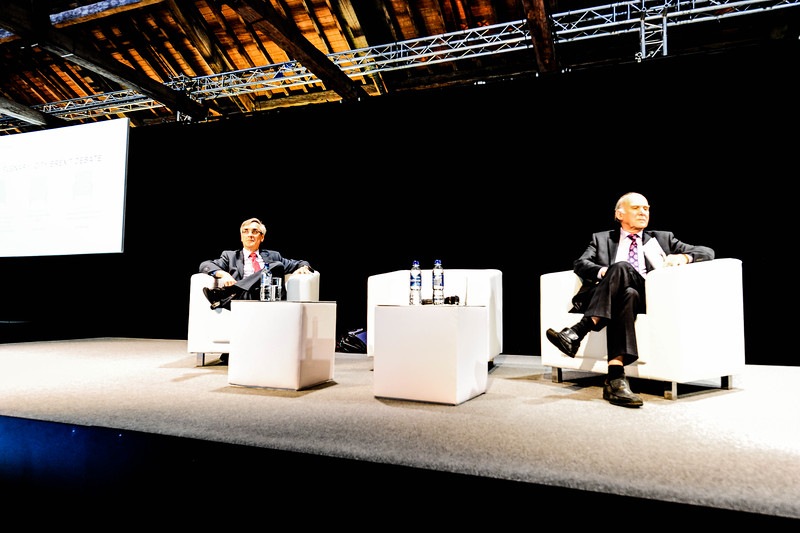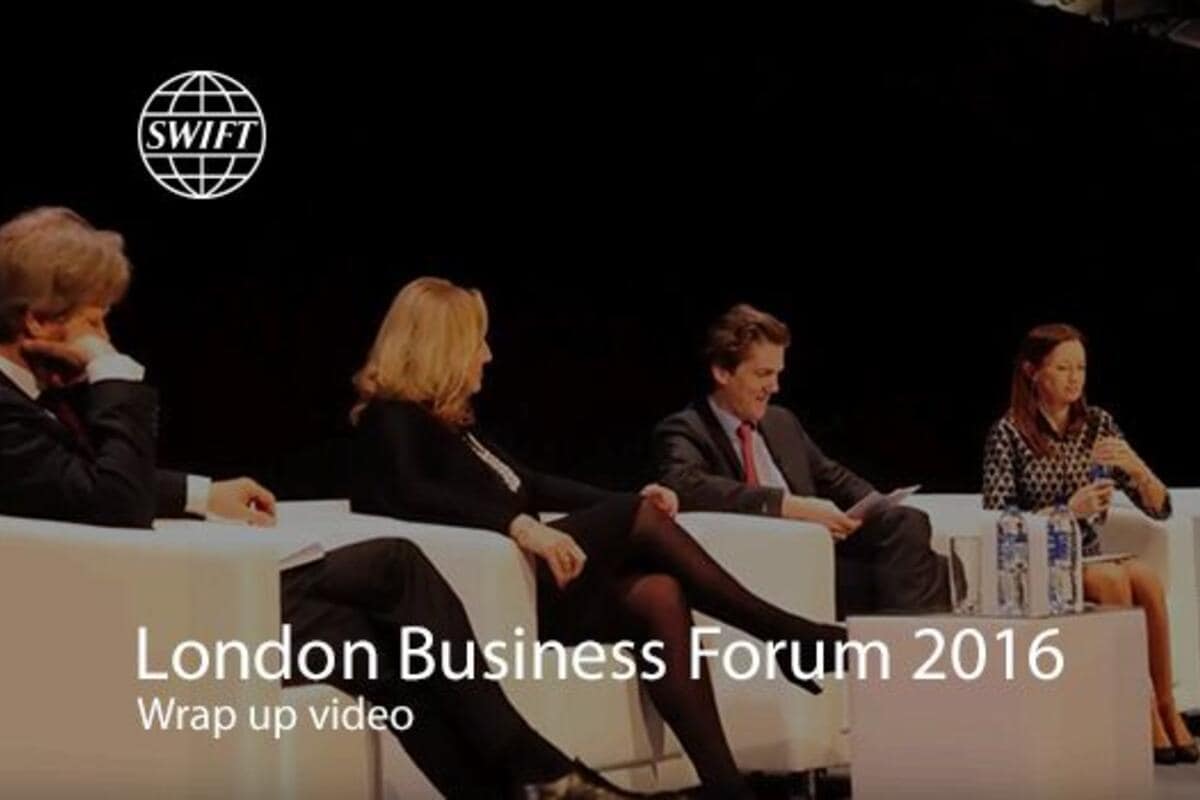1,200 people join the Swift Business Forum London to shape the future of financial services
The Swift Business Forum London (BFL) took place on 20 April 2016 at Tobacco Dock, a brand new venue in the heart of the docklands. It focused on the theme of building the future of the financial industry and more than 1,300 people registered for the event, making it the most attended Business Forum to-date. Content was delivered across three streams – payments, securities, and technology, featuring international industry thought leaders from banking, and FinTech. The event was opened by Eileen Burbidge, the UK Treasury’s FinTech adviser, and closed with a City Brexit Debate. Swift’s position paper on blockchain was launched during the event, and media outreach generated 70 pieces of coverage. There was a high-level of audience engagement on social media, where #BFLondon was a “Top 10 trending” topic on Twitter.
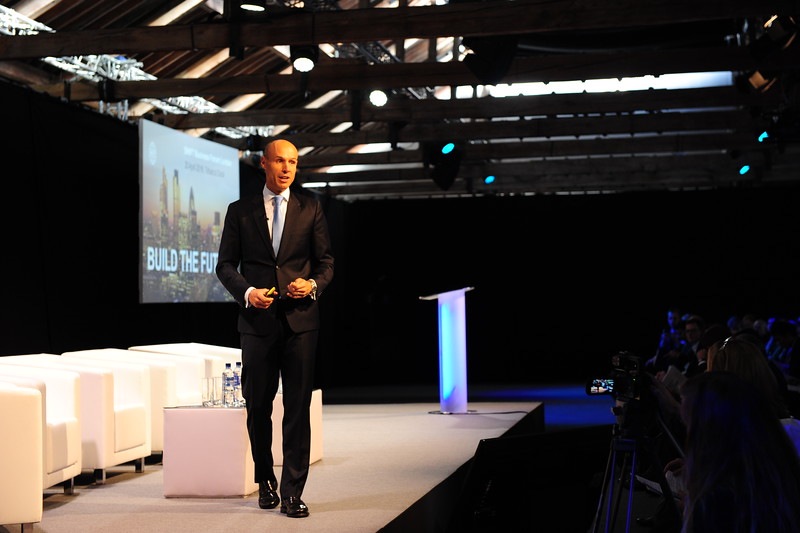
“Change will never be this slow again” was the point of reference from Swift’s Chief Executive, Americas & UK Region, Javier Pérez-Tasso, when welcoming delegates to the Swift Business Forum London 2016.
Javier set out the dual challenges that banks face in the future – on the one hand, managing regulation; remaining compliant, resilient and cost-effective; and on the other, focusing on innovation and transformation; utilising new technologies and understanding customer demands.
We're entering the fourth industrial revolution – which will continue to transform financial services
Eileen Burbidge, FinTech Envoy to HM Treasury, addressed key topics around disruption, innovation and technology, particularly as it impacts London’s position as the FinTech capital. Eileen predicted that with the current rate of change in the industry, in 10 years’ time we won’t be talking about FinTech as a sector - any bank that is delivering services will be FinTech by nature and any FinTech that survives will be a financial institution.
Banking has always been a leader in technology
With disruptive forces prevalent in the industry, this year’s opening panel focused on Building the Future of the Financial Industry. Blockchain and changing customer demands were key themes throughout the discussion.
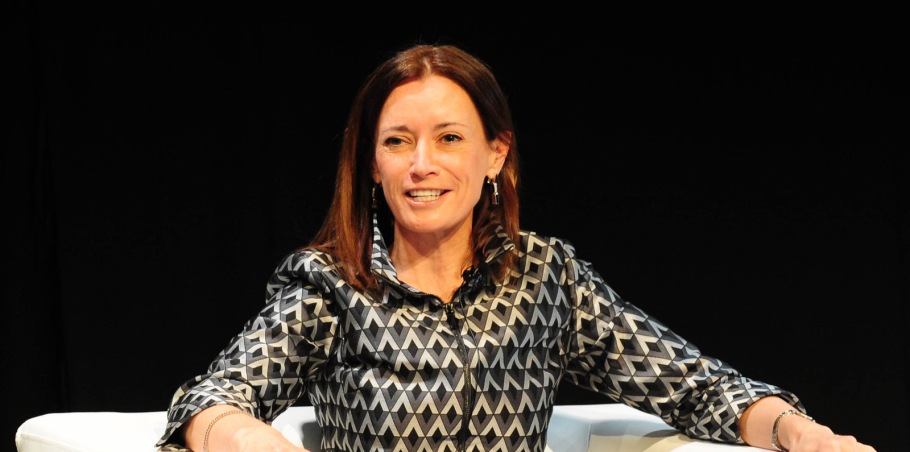
The financial industry has never failed in the past to come together and collaborate - we are going to see that happen again
Content was delivered across three mains streams: Payments; Securities and Technology, with additional sessions from our partners and sponsors.
Future of Payments: A Burning Platform?
Disruption is at the forefront of many institutions’ agenda and 71% of the audience said it will hit payments more than any other sector. When probed how seriously their organisation is taking new entrants in payments - two-thirds answered that they are actively involved or are seriously investing. This led to an exploration of how collaboration and regulation will drive change, whilst underlining how security and resiliency remain paramount when building a digital economy.
To close, the audience were asked again about their interest in engaging further with new entrants - the poll revealed a 17% increase compared to the opening of the session.
71% of the audience said disruption will hit payments the most – with two-thirds investing in new entrants.
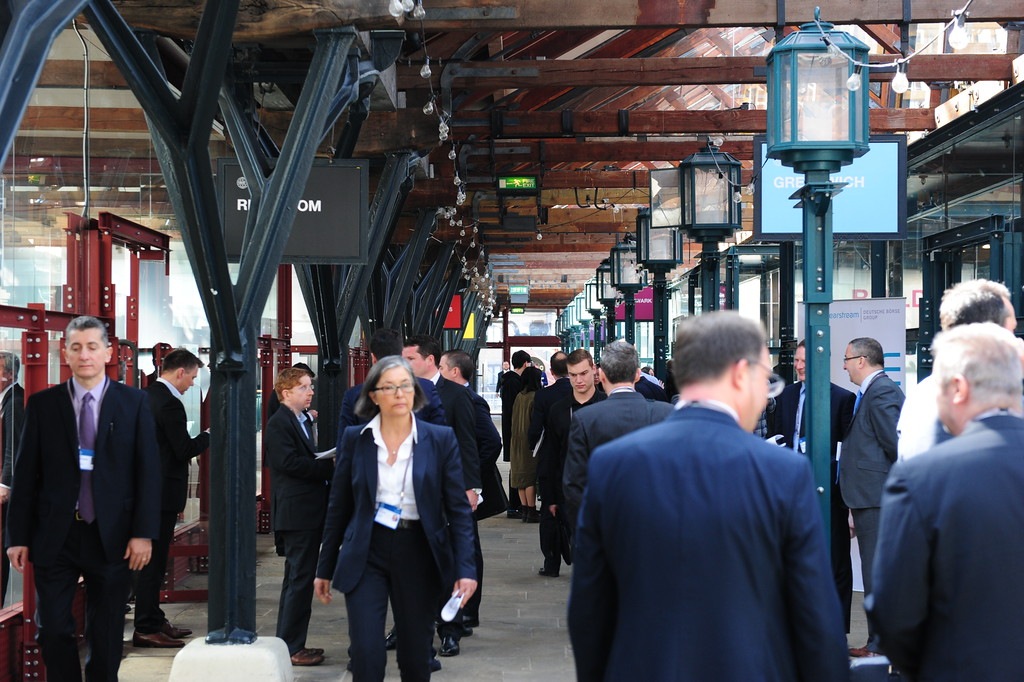
Blockchain - Beyond the Hype
In this session, panel members looked beyond the hype and questioned whether real world applications will emerge for distributed ledger technologies (DLT). Until recently, DLT was getting very little attention from the mainstream – now banks are investigating the underlying technology more widely and are closer to figuring out what the use cases might be.
Payments were deemed to be the realistic place to start, however, in reality, probably the hardest. When asked where DLT will make the biggest impact over the next five years; securities, settlement and reconciliation were considered the most likely areas by the audience with a third of the votes.
Over the next couple of years we will see a focus on scalability, on making DLT more useable for general use-cases.
Swift on Distributed Ledger Technologies
Sessions looking at applications and use-cases for DLT were standing room only. Seeking to deliver an industry-standard platform through community collaboration, Swift and Accenture have now published a positioning paper which analyses the opportunities and challenges of DLT in financial services and identifies the key factors for success.
Swift Institute Challenge 2016
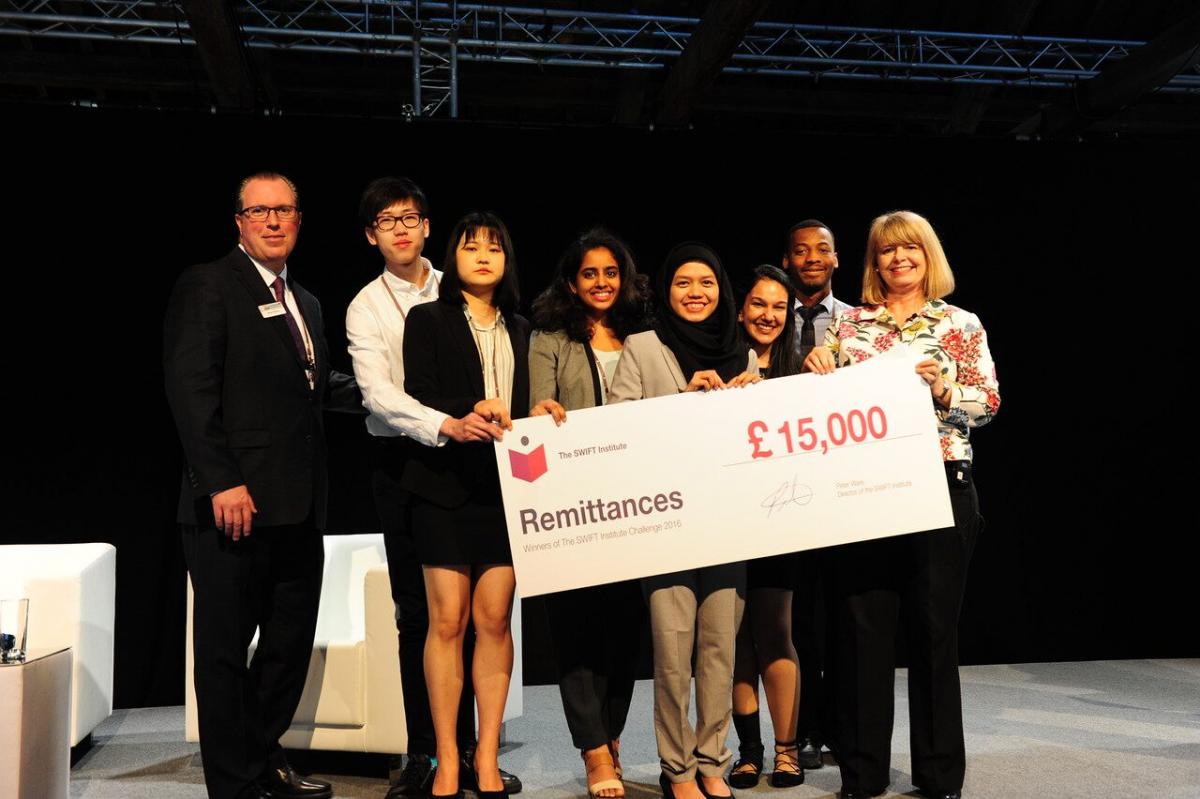
The Swift Institute Challenge brought together the finest budding entrepreneurs from the UK’s top universities to pitch a solution that would enable a bank’s customer to send money cross-border.
HADU, from the Warwick Business School, were selected as the winner by the audience on the day. The winning solution utilised NSDT (Near Sound Data Transfer) technology to deliver mobile money. Harriett Baldwin, Economic Secretary to the Treasury, presented the prize of £15,000 to HADU at the closing plenary of the Business Forum London.
Winners: HADU with Peter Ware, Swift and Harriet Baldwin, Economic Secretary to the Treasury
Brexit Debate
The referendum on Britain’s membership of the European Union is set to be the defining political event of the year – and is fundamental to the future of the UK’s economy. The Brexit debate saw Sir Vince Cable, Former Secretary of State for Business Innovation and Skills representing the ‘remain’ campaign, pitched against Rt. Hon John Redwood, Conservative MP of the ‘leave’ campaign. Following a lively debate both for, and against, the audience voted – with 68% opting to ‘Remain’, and 32% choosing to ‘Leave’.
